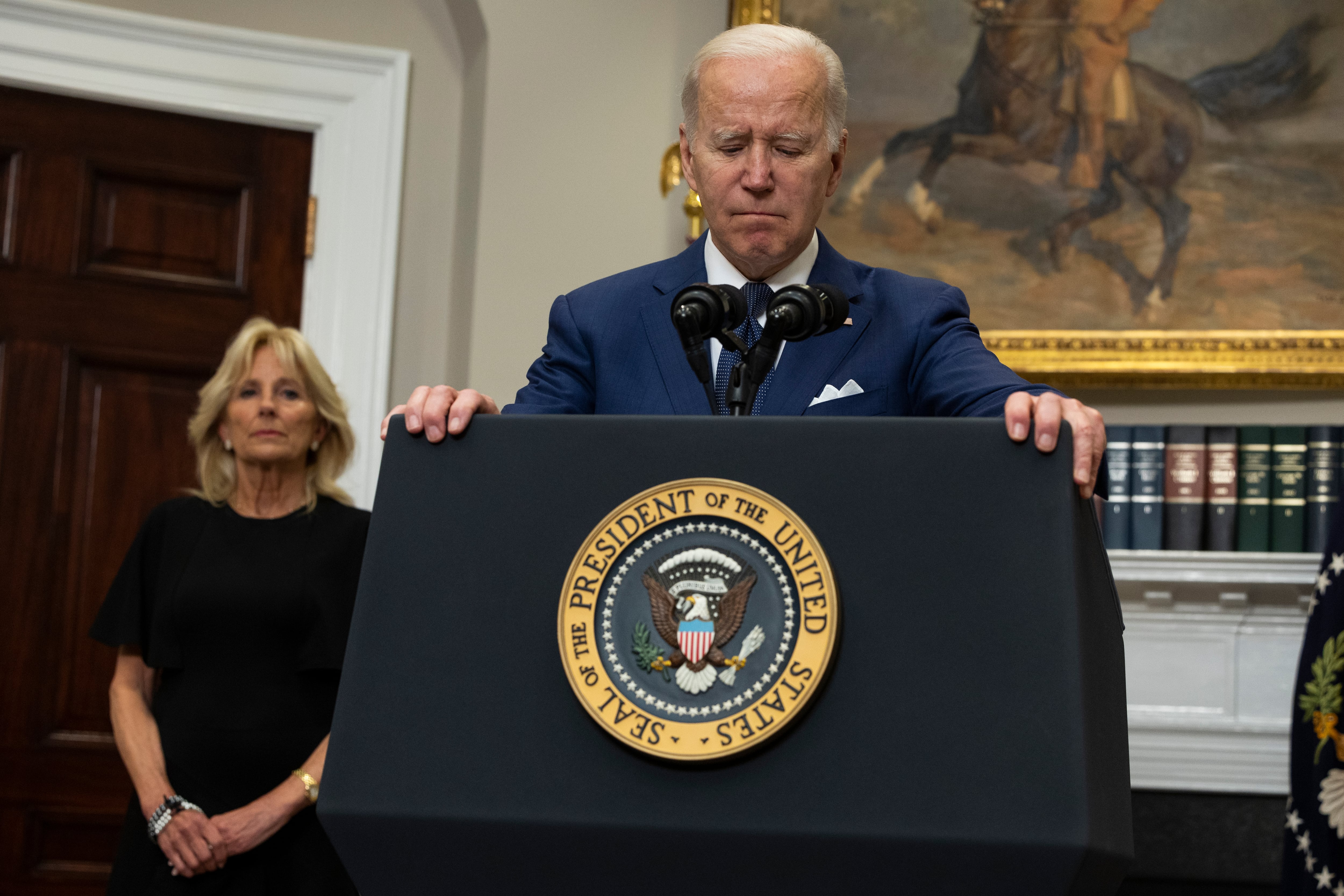President Biden urged lawmakers to act after 19 students and two teachers were shot and killed at a Texas elementary school on Tuesday.
“Why are we willing to live with this carnage?” Biden asked in an emotional speech, where he said the pain of losing a child was like “having a piece of your soul ripped away.”
“Don’t tell me we can’t have an impact on this carnage,” he said, singling out gun manufacturers and gun lobbyists.
The shooting at Robb Elementary School in Uvalde, Texas, marked the deadliest school shooting since 20 students and six educators were shot and killed at Sandy Hook Elementary in Newtown, Connecticut in 2012.
The incident is the latest shooting at an American school that has led to mass casualties — reigniting deep-seated concerns from families and educators about how to keep children safe at school. The tragedy also raises longstanding questions about what schools should do to guard against violence and how gun ownership should be regulated in the U.S.
The Uvalde attack marked the 27th school shooting that involved injuries or deaths this year, according to a tracker maintained by Education Week, with each bringing its own trauma to a community.
Little has changed in response, with federal legislation meant to limit access to guns or prevent mass shootings repeatedly failing to make its way through Congress. In the wake of the Sandy Hook shooting, families that lost children advocated unsuccessfully for state and federal gun control measures. Though survivors of the shooting at Marjory Stoneman Douglas High School in Parkland, Florida, which killed 17 students and school staffers, had success pressing some states to pass tighter restrictions.
“We need to do something,” David Hogg, a survivor of the Parkland shooting who became an activist in its wake, wrote on Twitter Tuesday.
Over the last decade, Biden has played a prominent role in trying to pass gun control legislation. President Obama tapped Biden to lead the White House’s efforts on guns after the Sandy Hook shooting. Biden lobbied unsuccessfully for federal legislation to expand background checks on gun sales.
“When in God’s name are we going to stand up to the gun lobby?” Biden asked Tuesday, his voice raw. “When in God’s name are we going to do what we all know in our gut needs to be done?”
According to police and news reports about Tuesday’s shooting, an 18-year-old gunman, a student at a nearby high school, entered Robb Elementary with a handgun and possibly a rifle on Tuesday morning and opened fire. The school enrolls some 570 students in second to fourth grade, nearly all of whom are Latino, state data show. It was two days before the district was set to let out for summer break.
Though each school shooting is uniquely devastating, the aftermath is often similar for the communities that have been shaken by loss: grief, confusion, anger.
Secretary of Education Miguel Cardona, who spent most of his career as an educator in Connecticut, said he’d never forget “the ripple effect of fear and heartbreak that spread among students and teachers” in his home state after the Sandy Hook shooting. Federal education officials are offering on-the-ground support to the Uvalde community and resources from an emergency program that helps schools recover from a violent or traumatic event.
In Uvalde, the district’s police chief, Pete Arredondo, said that the district was notifying families that had lost loved ones and was providing services to them.
“Our prayer tonight,” Biden said, “is for those parents lying in bed trying to figure out, will I be able to sleep again? What do I say to my other children? What happens tomorrow?”
Chalkbeat has compiled resources and advice for parents and educators responding to trauma in their communities or helping children process violence elsewhere. Find those resources here.
Sarah Darville contributed reporting.
Kalyn Belsha is a national education reporter based in Chicago. Contact her at kbelsha@chalkbeat.org.







